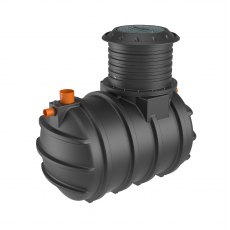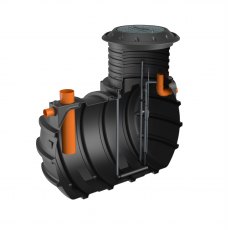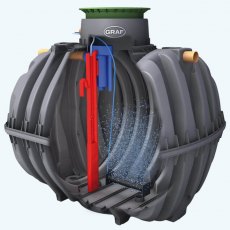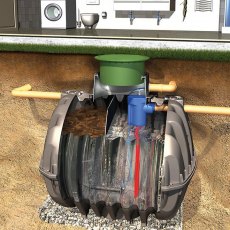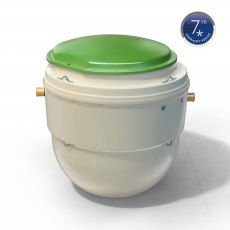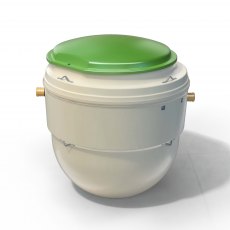Wastewater Treatment in Ireland: A Comprehensive Guide

Wastewater treatment is an essential process to ensure the protection of Ireland's natural water resources and the environment. With increasing urbanization and environmental awareness, modern sewage treatment plants and pump stations play a critical role in managing wastewater efficiently and sustainably.
This page explores wastewater treatment in Ireland, the products of sewage treatment plants, and the role of pump stations, drawing insights from leading sources like Tanks.ie and the Environmental Protection Agency (EPA).
The Importance of Wastewater Treatment
Wastewater treatment involves removing contaminants from domestic, industrial, and commercial wastewater to produce clean effluent that can safely re-enter natural water systems. Effective treatment minimizes pollution, protects public health, and ensures compliance with stringent environmental regulations set by the EPA.
Ireland's wastewater treatment infrastructure is governed by EU directives such as the Urban Wastewater Treatment Directive, which sets standards for wastewater collection and treatment to protect aquatic ecosystems and improve water quality.
Sewage Treatment Plants: Products and Processes
Sewage treatment plants (STPs) are specialized systems designed to treat wastewater in stages, ensuring that it meets environmental discharge standards. The key products of sewage treatment plants include:
1. Clean Effluent:
After treatment, wastewater is purified to a level where it can be safely discharged into rivers, lakes, or coastal areas.In Ireland, treated effluent must meet EPA standards to protect biodiversity and water quality.
2. Sludge:
Sewage sludge is a by-product of wastewater treatment, often processed further for use as a fertilizer in agriculture or for energy production through anaerobic digestion.
3. Recycled Water:
Advanced STPs provide treated water that can be reused for irrigation, industrial processes, or non-potable applications, contributing to water conservation.
4. Biogas:
Some plants use anaerobic digestion to treat organic waste, producing biogas as a renewable energy source.
Sewage Treatment Plants
Tertiary and Secondary Filters in Sewage Treatment Plants
An integral part of modern sewage treatment plants, secondary and tertiary filters enhance the purification process by removing fine particles, pathogens, and other impurities that may remain after primary and secondary treatment. Secondary filters typically focus on biological treatment, where microorganisms break down organic matter, ensuring compliance with environmental discharge standards. Tertiary filters, on the other hand, provide an additional layer of treatment, employing methods such as sand filtration, membrane filtration, or UV disinfection to achieve higher water quality. These advanced systems are particularly critical for areas near sensitive ecosystems, as they reduce nutrient levels, such as nitrogen and phosphorus, preventing harmful algal blooms and protecting Ireland's waterways.
A number of our systems include tertiary or secondary filters such as clay filters, sand filters or cocunut filters. These are often required by Local Authority Planning Offices. Please enquire with our experienced staff and they can direct you to the correct installation.
Types of Tertiary Filters

Pump Stations: Supporting Wastewater Infrastructure
Pump stations are essential components of wastewater management systems, designed to transport wastewater from lower to higher elevations when gravity flow is insufficient. These stations are commonly used in areas with uneven terrain, where sewage needs to be moved from residential, commercial, or industrial sites to treatment plants. Equipped with powerful submersible pumps, control systems, and monitoring technology, pump stations ensure a continuous and efficient flow of wastewater, preventing blockages and overflows. They play a vital role in maintaining the integrity of Ireland’s wastewater infrastructure, supporting the collection and transport of sewage while adhering to environmental regulations.
Key Features of Pump Stations:
Submersible Pumps: These pumps are designed for handling large volumes of water and are resistant to corrosion.
Monitoring Systems: Modern pump stations are equipped with sensors and control systems to ensure efficient operation and prevent overflows.
Energy Efficiency: With a focus on sustainability, many pump stations incorporate energy-efficient technologies to reduce operational costs.
Wastewater Treatment Products from Tanks.ie
Tanks.ie offers a wide range of products to support wastewater management in Ireland, including:
Septic Tanks: For residential and small-scale wastewater treatment.
Packaged Sewage Treatment Plants: Compact, efficient solutions for treating domestic and commercial wastewater.
Pump Stations: Durable and reliable systems designed to handle wastewater transfer.
Grease Traps: Essential for preventing blockages caused by fats, oils, and grease in commercial kitchens.
Rainwater Harvesting Systems: Reducing wastewater load by collecting and reusing rainwater.
Each product adheres to EPA guidelines, ensuring compliance with Irish wastewater regulations.
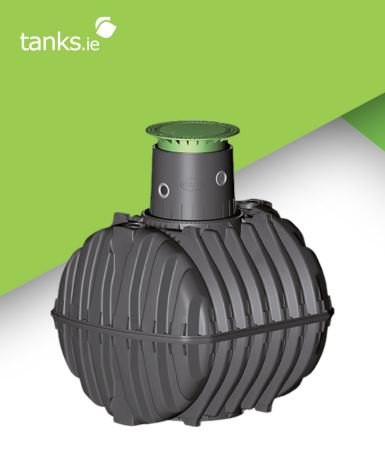
Septic Tanks
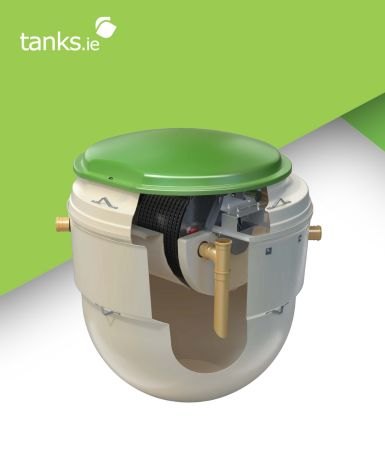
Sewage Treatment
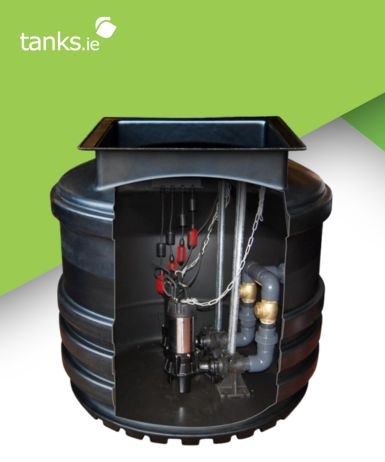
Pump Stations
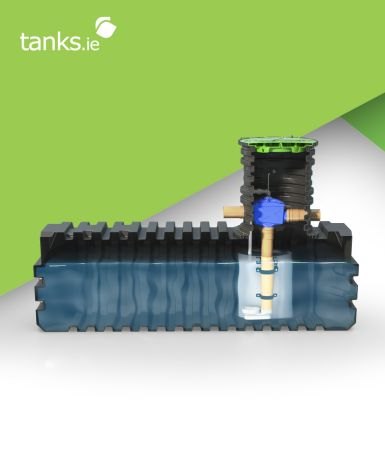
Rainwater Harvesting
EPA Guidelines and Compliance
The EPA oversees wastewater treatment in Ireland, providing strict guidelines to ensure:
Proper Installation and Maintenance: All wastewater systems must be properly installed and maintained to prevent leaks and contamination.
Regular Inspections: Homeowners and businesses are encouraged to inspect and desludge their systems periodically.
Environmental Protection: Effluent discharge must meet EPA quality standards to safeguard water bodies and ecosystems.
Sustainable Wastewater Management in Ireland
Modern wastewater treatment systems and products contribute significantly to sustainable water management in Ireland. By investing in advanced sewage treatment plants and pump stations, households and businesses can ensure compliance with environmental regulations while protecting Ireland’s rich natural heritage.
Explore a range of wastewater solutions at Tanks.ie or consult the EPA for detailed information on wastewater guidelines and best practices. Together, we can create a cleaner, greener Ireland.
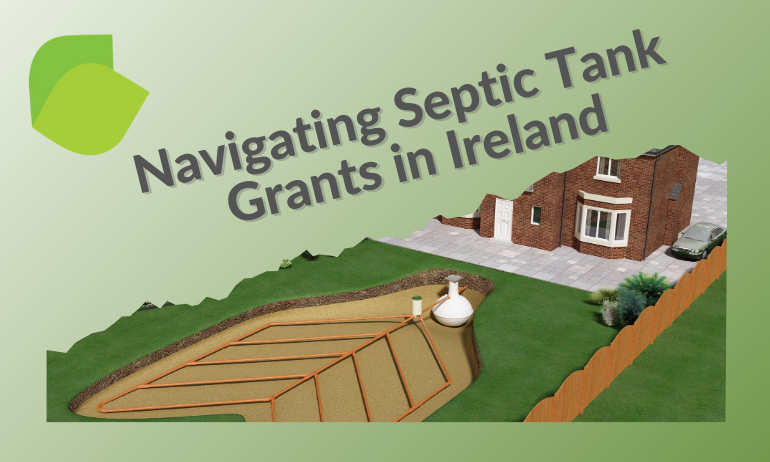
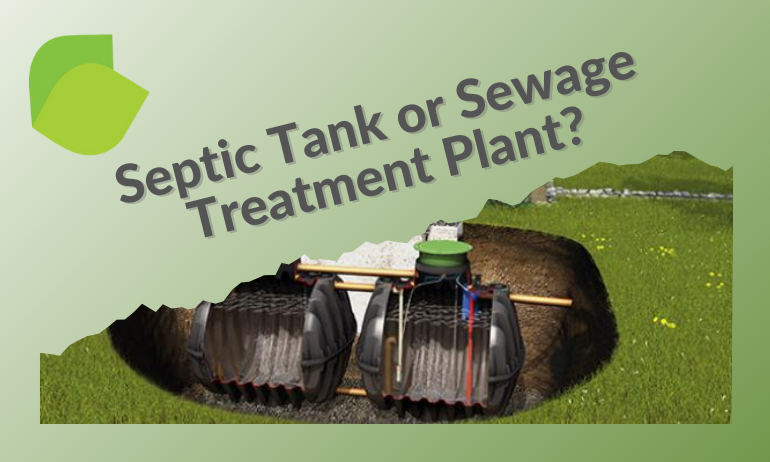

 Login
Login
